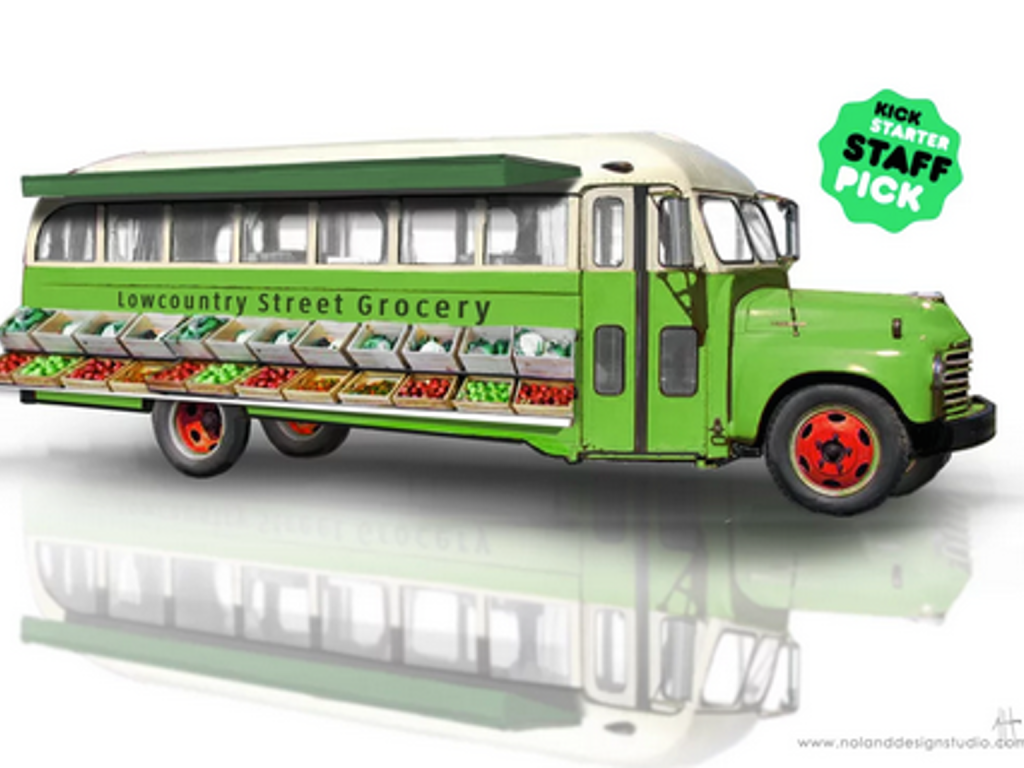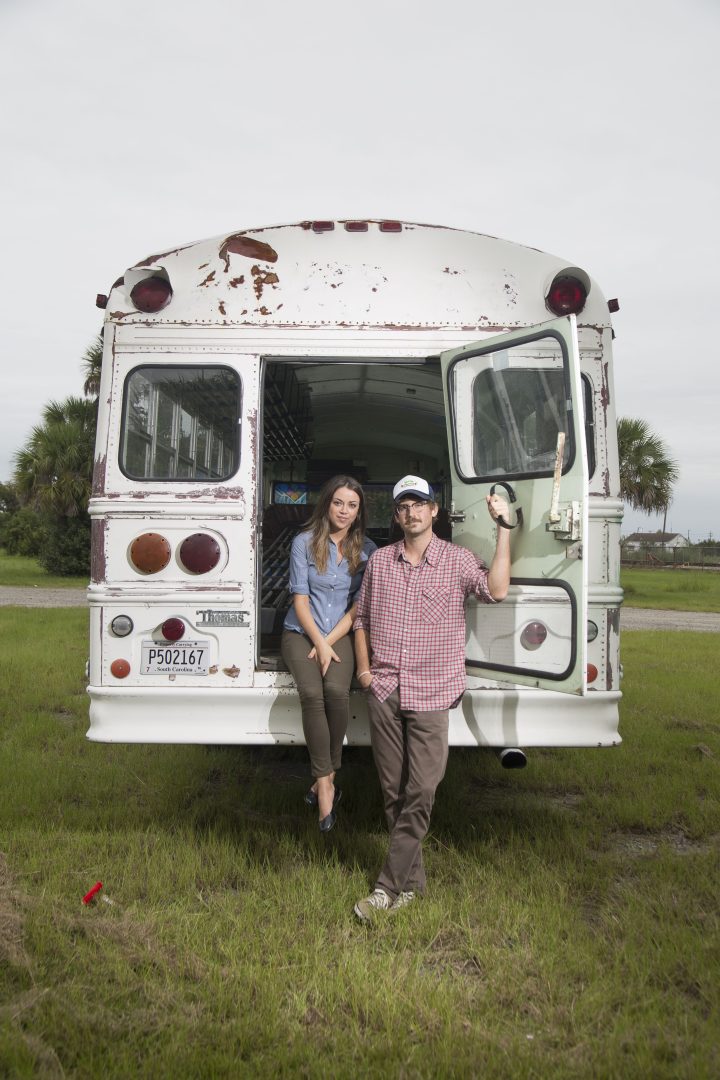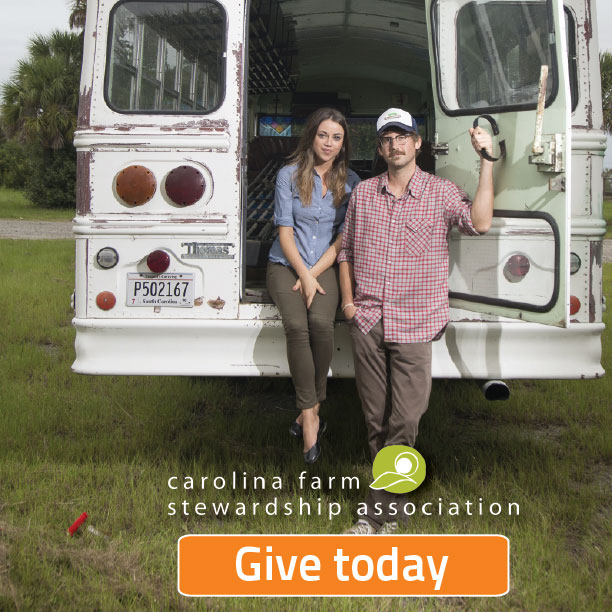One of our 2015 inspiring member stories
by Stephanie Campbell, CFSA’s Outreach Coordinator
CFSA’s mission is to help people in the Carolinas grow and eat local, organic food. We have a proven track record of training farmers to grow organically, increasing access to high-value markets for small-scale farms, and advocating for farm and food policy reform. But, we realized that an important piece of the seed-to-plate puzzle was missing: in many parts of NC and SC, the local food infrastructure was lacking or inadequate to handle demand. In other words, we’ve helped train farmers to grow and raise local, sustainable produce and meats, but facilities to get those products from farm to fork were few and far between.
To bridge this gap, last year CFSA launched an exciting initiative whose goal is to build and strengthen community food infrastructure in the Carolinas. We selected eight innovative and exciting food projects – four in North Carolina and four in South Carolina – to provide business development consulting services this year.
One of those projects is the Lowcountry Street Grocery (LSG) in Charleston, SC. LSG is a mission-driven, mobile farmers’ market designed to make healthy, local food affordable and accessible to all Charleston residents, including those residing in areas designated as food deserts.
The USDA estimates that 23.5 million people live in “food deserts,” low-income urban neighborhoods and rural towns with little to no access to grocery stores or other healthy, affordable food retail outlets. Charleston is home to 11 such census tracts with an estimated 23,000 individuals impacted.
It’s been a very busy year for LSG. CFSA staff provided assistance in launching a successful Kickstarter campaign, developing a business plan, and identifying additional resources for LSG. Five hundred and fifty-one backers pledged $47,002 through Kickstarter to bring this project to life. Lindsey Barrow, Founder and Director, and Kate Dewitt, Associate Director, are busy following up with all of those relationships as well as painstakingly renovating the 1987 Ford school bus purchased by the campaign. The bus will feature a two-aisle, indoor/outdoor traveling neighborhood grocery with coolers and freezers for proteins as well as folding produce-filled farm crates. LSG will accept SNAP/EBT cards and even give discounts to those who are paying with government-funded assistance.
“Nell,” the name lovingly bestowed on the retrofitted school bus, made its debut appearance this fall right before the floods that devastated South Carolina. This two-aisle grocery store on wheels, set up in a Whole Foods parking lot, served as an outlet for sweet potatoes and other crops from local farms, helping farmers get crops out of the fields and into a market before the rains came.
“This is just one example of how we are utilizing traditional business tools to create a more synergistic and sustainable way to make necessary change and do good,” says Lindsey. “Our model is to take what IS working within our local food economy and extend it to the communities that need it most. It’s about making the concept of ‘local’ work for ALL locals.”
CFSA is proud to be a resource and a partner with Lowcountry Street Grocery.
“CFSA is a conduit for connections and support,” says Lindsey. He points out that while the direct business development services of CFSA were essential in helping LSG achieve their start-up goals, the work of CFSA goes beyond those. “CFSA is building a community which will rally around farmers and small businesses and help us all become involved in where our food comes from.”
Read more about Lowcountry Street Grocery and the other 2015 Food Projects
__________
Your gift to CFSA is one of the best ways you can support local farmers and champion food that is good for consumers, good for farmers and farmworkers, and good for the land.
Please give today.
You can donate online at /give
or mail a check to CFSA, PO Box 448, Pittsboro, NC 27312.



